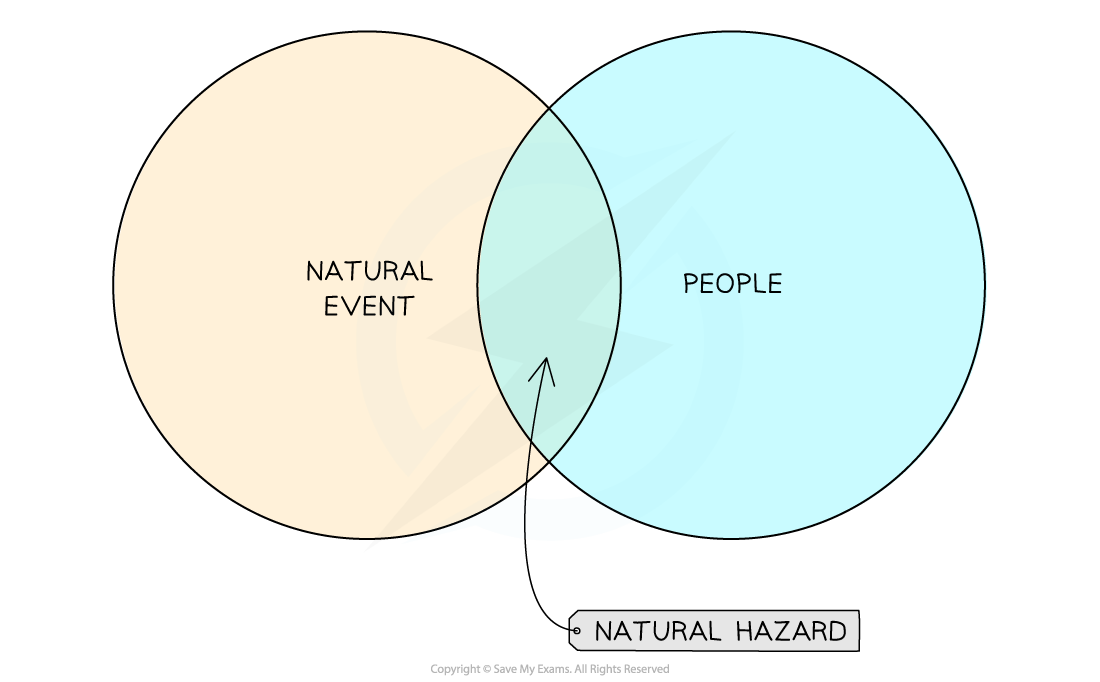Defining Hazards
- A hazard is an event which has the potential to cause harm to the environment, people or the economy
- A natural hazard is an event caused by environmental processes and would occur without the presence of humans
- The term hazard is used because of the potential impact when the natural event interacts with humans

Interaction of people and natural events
- A disaster occurs when harm actually occurs to the environment, people or the economy
- The UN defines a disaster as:
- ‘A serious disruption of the functioning of a community or a society involving widespread human, material, economic or environmental losses and impacts, which exceeds the ability of the affected community or society to cope using its own resources’
- The UN defines a disaster as:
Exam Tip
It is important to remember that a natural hazard is a natural event that has the potential to harm people and their property. A disaster only occurs when that potential is realised so actual harm occurs.
- There are 3 main types of natural hazard:
- Geophysical – caused by land processes – examples include earthquakes, volcanic activity and mass movements such as landslides and mudflows
- Atmospheric – caused by meteorological or climatic processes – examples include tropical storms and wildfires
- Hydrological – caused by the movement and distribution of water – examples include floods
- Natural hazards have the potential to cause significant impacts on humans and on the built and natural environment e.g. loss of life, property damage and psychological impacts
- The severity of the impacts depend on a number of factors such as population density of the area, magnitude of the hazard and the level of preparedness
Exam Tip
It is important to recognise that some hazards may be caused by a combination of processes e.g. heavy rain could lead to saturation of soil and a low-magnitude earthquake could then trigger a landslide

